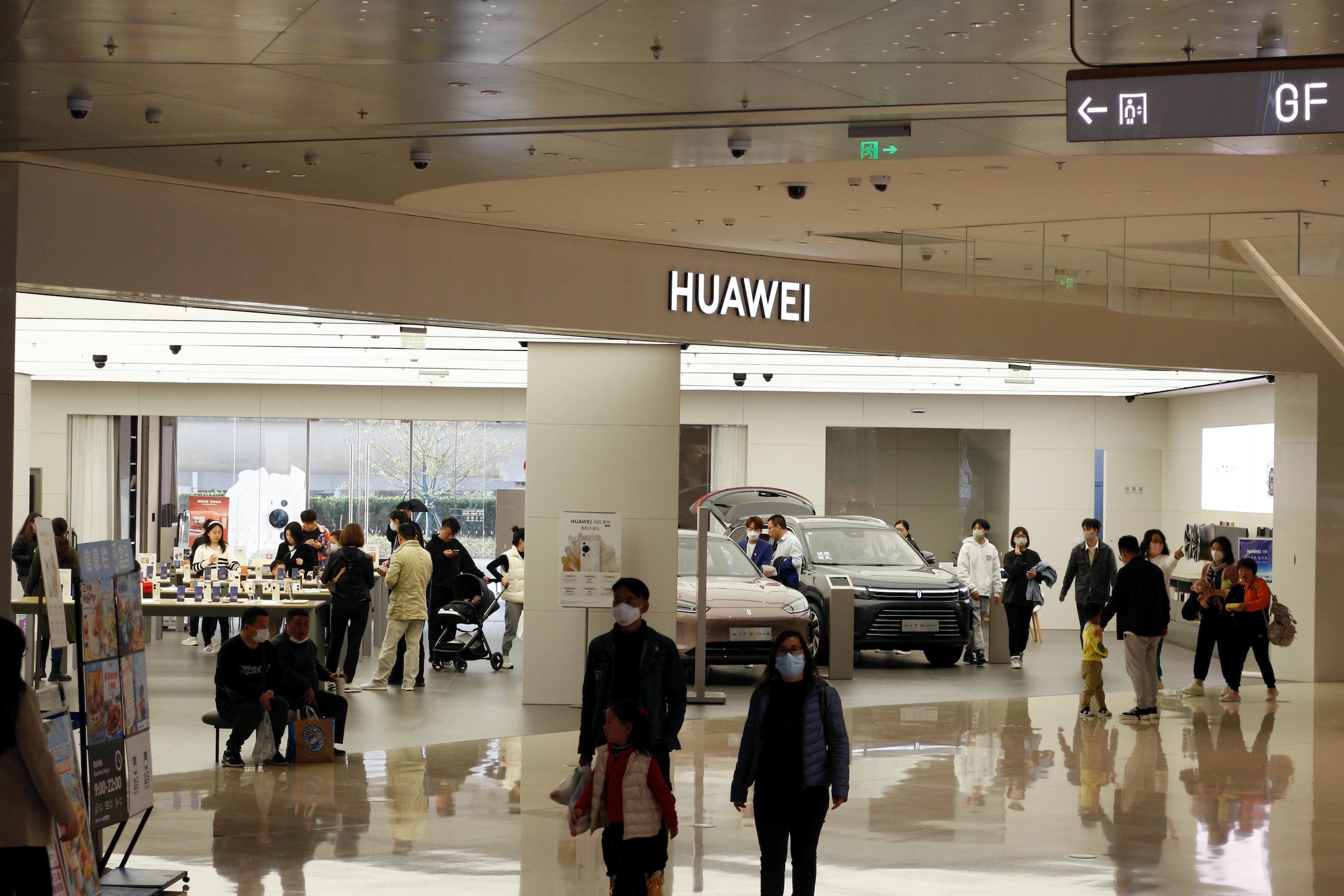
About the Author
By Ryan Daws |
3rd January 2024

Ryan is a senior editor at TechForge Media with over a decade of experience covering the latest technology and interviewing leading industry figures. He can often be sighted at tech conferences with a strong coffee in one hand and a laptop in the other. If it’s geeky, he’s probably into it. Find him on Twitter (@Gadget_Ry) or Mastodon (@gadgetry@techhub.social)
.pp-multiple-authors-boxes-wrapper {display:none;}
img {width:100%;}
Chinese telecoms giant Huawei is targeting growth in 2024 for its newer business areas including digital energy and smart vehicle solutions, according to rotating chairman Hu Houkun.
In an end-of-year memo, Hu said the company expects to surpass 700 billion yuan ($103 billion) in sales for 2023. While its core ICT infrastructure business “will remain robust,” greater momentum is building behind the firm’s digital energy and smart vehicle solutions.
“The competitiveness of smart car solutions will increase significantly,” said Hu. “Digital energy should continuously improve product quality and competitiveness, seize low-carbon certainty opportunities, contribute more profits, and achieve valuable growth.”
He attributes Huawei’s continued resilience against US trade restrictions to its workers toiling away on the front lines to keep critical infrastructure operational.
Hu cites teams braving typhoons in China to restore communications networks and pushing through delayed shipments to complete projects within tight deadlines set by customers spanning Asia, Africa, and South America.
The chairman admits, however, that “the challenges are still severe” looking ahead into an uncertain geopolitical and economic climate this year.
“No matter how the external environment changes, we firmly believe that digitisation, intelligibility, and low carbonisation are the most definite development trends,” declares Hu.
Huawei’s cloud services unit is pivotal to realise the digital transformation of industries, while it’s ploughing more investment into developing larger AI models and the hardware required to run them.
The Chinese firm is also directing resources into core information and communications technology like computing, storage, and networking where it holds advantages against rivals.
As part of a continuing restructure, Huawei is devolving more power to individual business units so they can tailor strategies closer to their customers and markets. Greater autonomy aims to promote quicker decision-making.
According to Hu, compliance remains an utmost priority for Huawei as well as privacy protections amid increasing data regulations. Hu says the company will continue communicating pragmatically with stakeholders worldwide.
See also: TomTom and Microsoft unveil generative AI for connected vehicles


Want to learn about the IoT from industry leaders? Check out IoT Tech Expo taking place in Amsterdam, California, and London. The comprehensive event is co-located with AI & Big Data Expo and Digital Transformation Week.
Explore other upcoming enterprise technology events and webinars powered by TechForge here.
Tags: ai, artificial intelligence, cloud, cloud computing, connected car, connected vehicle, digital transformation, Enterprise, Hu Houkun, smart car, smart vehicle
- SEO Powered Content & PR Distribution. Get Amplified Today.
- PlatoData.Network Vertical Generative Ai. Empower Yourself. Access Here.
- PlatoAiStream. Web3 Intelligence. Knowledge Amplified. Access Here.
- PlatoESG. Carbon, CleanTech, Energy, Environment, Solar, Waste Management. Access Here.
- PlatoHealth. Biotech and Clinical Trials Intelligence. Access Here.
- Source: https://www.iottechnews.com/news/2024/jan/03/huawei-forecasts-growth-digital-energy-smart-car-solutions/
- SEO Powered Content & PR Distribution. Get Amplified Today.
- PlatoData.Network Vertical Generative Ai. Empower Yourself. Access Here.
- PlatoAiStream. Web3 Intelligence. Knowledge Amplified. Access Here.
- PlatoESG. Carbon, CleanTech, Energy, Environment, Solar, Waste Management. Access Here.
- PlatoHealth. Biotech and Clinical Trials Intelligence. Access Here.
- Source: https://zephyrnet.com/huawei-forecasts-growth-in-digital-energy-and-smart-car-solutions/

